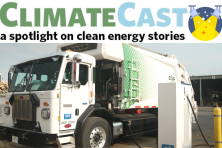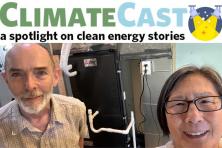COP28 convenes in UAE with fractional results
Just a year ago, fossil fuel companies complained they felt unwelcome at COP27; at this year’s COP28 international climate conference, OPEC has its own pavilion. The host country of the United Arab Emirates is a massive oil and gas producer and is seeking to increase production. Accordingly, the rhetoric from oil companies and their nearly 2,500 lobbyists attending COP28 has been a future of “low carbon energy” instead of zero. The misinformation campaign is being facilitated by the host Sultan Al Jaber of UAE, claiming there was “no science” to support a phase-out of oil and gas from our global energy system. The good news is the 200+ member countries, by and large, aren’t buying this narrative. The most recent copy of the agreement being drafted explicitly calls for an “orderly and just” phase-out of fossil fuels. More than 110 countries have agreed on a deal to triple their renewable energy by 2030. The United States has led the way by unveiling new regulations on methane emissions from oil and gas companies aimed at bringing methane levels down by 30% in the next seven years.
Climate policy in Washington: never a dull moment
Washington’s State Building Code Council updated the new commercial and residential building codes that will make homes and buildings more efficient and help to eliminate fossil-fueled heating systems in new construction. “It will soon become nearly impossible to install fossil-fueled appliances to heat new homes and businesses in Washington,” Isabella Breda wrote in the Seattle Times. The council had previously updated building codes to require energy-efficient heat pumps to replace oil or gas furnaces in all new construction. However, that rule was paused after courts ruled against a similar requirement in Berkeley, CA. The new decision aims to avoid legal hurdles by mandating low emissions rather than specifically banning fossil fuels. Buildings are responsible for nearly a quarter of Washington State’s greenhouse gas emissions, making cutting pollution here an important climate priority. The revised codes should go into effect this coming spring, although opponents — including the Building Industry Association of WA — may continue their efforts to scuttle the new rules.
Other opponents of climate progress in Washington are attempting to repeal the state’s landmark cap-and-invest law, the Climate Commitment Act (CCA). Last week, the “Let’s Go Washington” campaign filed petition signatures to put a measure to repeal the CCA on the ballot; the group sponsoring the repeal effort has also been gathering signatures for a number of right-wing causes, including tax cuts benefiting wealthy households.
The CCA requires the state’s largest polluters to pay for pollution permits. The funds from the sale of those permits are on track to reach nearly $2 billion in 2023. These dollars are already headed to our communities to address air quality issues in communities with the worst air pollution, support clean energy and climate resilience projects, and create more jobs in the clean energy sector. The law is an important tool for meeting the state’s climate targets. A repeal would defund many projects and set back the state’s efforts to respond to climate change. Repeal backers blame the law for high gas prices, even though immensely profitable oil and gas producers can set prices however they wish. Climate Solutions’ Kimberly Larson pointed out that gas profit margins in Washington state are among the highest in the country: “the oil industry could change that, but they’re choosing not to. They’re choosing to pass the cost onto consumers.”
What we’re watching
We are excited to share an informative YouTube video by the Vox Media Atlas series on the complexities of deep-sea mining, The race to the bottom of the ocean. They use the Clarion-Clipperton Zone as a case study to show who gets to mine, how, and why, principally our collective need for rare earth metals to transition our global energy system from fossil fuels to renewable energy. The United Nations agency tasked with regulating all this, the International Seabed Authority, is attempting to balance mining, environmental harm, and how to fairly share profits from a resource in international waters, all while acknowledging our growing global need for these metals.




